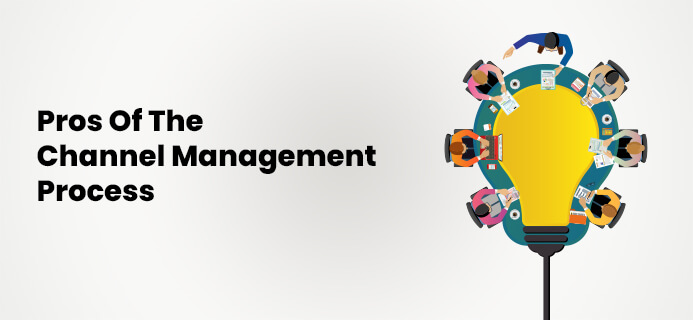When you are a manufacturer or the handler of a company, you have to understand that you can not manage all the work yourself, especially the production and the selling on your own. Manufacturing and looking after the production lines is the essential job of a manufacturer.
But out of the product sales, the company will make a good profit. If you want to grow your company, you have to concentrate on selling the goods primarily. Here the names of the channel management process are becoming stronger.
Without a successful, efficient channel management process, your business and the products selling both are turning to be hectic jobs. But when you involve channel management software in the system, your sales and marketing work is becoming more simple and more productive.
Let’s see first the answer to ‘ what is channel management?’
What Is Channel Management?
The manufacturers are looking after the product’s production. After the production of the product, these products are heading towards the market for sales. Channel management is a process where the channel partners look after the product selling and product marketing with a specific channel.
Channel management is working as the connecting bridge between the customer and the manufacturing company. The channel partners followed an individual target to sell the product and make the communications between the customer and the manufacturing company.
Most of the channel partners are following the contractual bond between the company and them. And they are communicating on behalf of the manufacturer of the company. The channel partners can individually develop any new channel management strategy to improve the marketing plannings.
The relationship between customer service and channel management is quite dependable. Customer service is an essential key integral part of the channel management process.
When the channel management partners represent the company brand, the customer care services should be pretty strong and professional as the customers do not lose their faith in the brand. Now we think the channel management definition is clear to you.
Now let’s jump into the next phase of the question of the importance of channel management. The channel management example is giving you a better understanding of the topic.
Pros Of The Channel Management Process
For Running a business, the necessity of a productive channel management process is to help you to grow. The main working area of the channel management process is to streamline all the business and customer communications. This is the reason in the positive channel management process that customer communication is so important.
Here are the pros of the channel management process. Take a look at this and plan your successful channel operation module.
- The Channel management process is looking after the communications between the customers and the manufacturing company. And make a better relationship with good customer care support.
- Along with good revenue generations, the customer relationships and the bonds are going to be stronger when you are using the successful channel management process.
- Each channel partner is responsible for streamlining the communications with the customers in the channel. Every channel follows different types of strategy and different types of customer care services. Along with the goal achievements, you will know which module is the best suitable for your business.
- Techniques and strategies wise, each and every channel is using different techniques. But business protocol remains in the same position.
- The channel partners are establishing direct communications with the customers of the specific channels. So every time the customers need any specific help, the channel partners are present to provide the customer support.
- Along with the good customer support, your brand value is also going to increase, and your products are going to reach a good number of customer connections.
These are the attractive features of the channel management process. And if you want to grow your business, the first thing you have to do is develop attractive channel connections and develop a good channel process model.
How To Boost Your Channel Partners?
Boosting your channel partner means you are taking action to grow your business. Successful channel management is the only way by which you can spread your product sales areas. Successful channel management has multiple benefits for your business. The best of all is the manufacturers do not have that much time for customer communications and looking after marketing and sales. But direct recruiting is very costly here.
Here is some strategy that you can follow to boost your channel partner’s energy.
- Excellent cooperative collaboration with the channel managers and schedule data exchange is a regular job to boost the channel partner’s energy.
- And the meetings and essential training are the compulsory tasks to grow the channel engagement process and improve the communications.
- Announce the suitable incentive models for your channel partners. And elaborate the model structure in the open seminars.
- Always give the achievable target and a different target scope with different incentive structures. The target should be on the basis of the experiences and the channel’s nature. So for every channel partner, the target is distant.
- Seminar meetings are helping you to develop a stronger bond with your channel partners. Always communicate with the partner, and the channel manager should always maintain the communications between channel partners and the company.
The company goal and the channel partner’s cooperation are helping you develop a solid and productive channel management system. More you recruit the new channel partner, their different perspectives, and the additional business terms are helping you to make progress and generate a new productive channel management process.
Wrapping It Up
The channel partners are a great help to spread your business and develop a more productive sales and marketing team. Hence, you are a manufacturing company and do not have time to look after sales and marketing.
Therefore, creating a good channel management process offers the best facility to your customers. What is your opinion about the channel management process? Do not forget to share your opinion with us.
More Resources
- 5 Tips to Improve Your Internet Privacy
- Why Your Business Needs Call Center Tracking
- IT Quick Fixes for Your Business During the Crisis by Paul Belogour


























